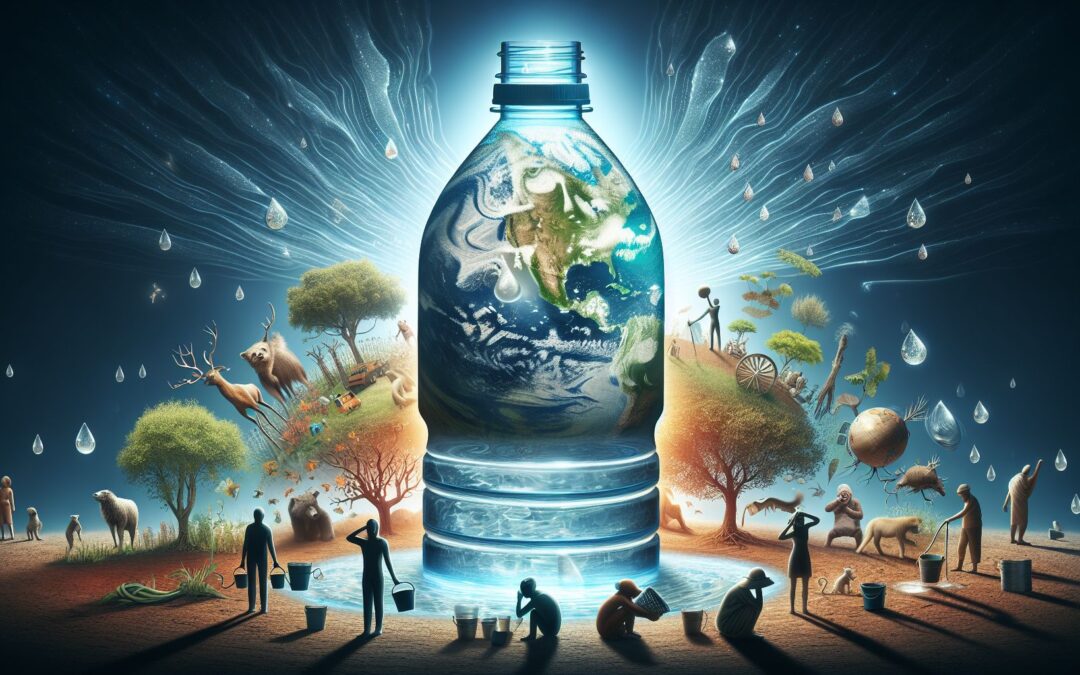Every drop of water is precious. As the world population continues to grow, the number of people who rely on this life-sustaining resource increases as well. Although groundwater is often overlooked, it is genuinely a hidden treasure that provides water security to nations across the globe. However, groundwater depletion is a grave issue that threatens this security. It is a hidden threat that, if left unattended, could have detrimental effects on our planet.
Understanding Groundwater
Groundwater is an invisible and underground resource that collects in spaces and fractures within rocks, as well as tiny pores between particle grains in the earth’s layers. Other than the polar caps and glaciers, it is the world’s largest available supply of fresh water[^1^]. It supports agriculture by providing irrigation for crops, serves as drinking water to millions of people, fuels industries, and maintains the health of natural ecosystems.
The Ongoing Groundwater Crisis
As population growth, urbanization, and climate change exert more pressure on water resources, unsustainable extraction of groundwater has increased, leading to its depletion. Over-extraction occurs when water is pumped out of the ground faster than it can be replenished. This alarming rate of depletion can lead to dire consequences such as land subsidence, reduced water quality, and dried-up springs and wells.
Moreover, as the water table declines due to over-extraction, the cost of pumping increases. It becomes difficult and expensive to continue extracting water, and this can affect agriculture, industries, and households that rely heavily on groundwater. Countries with arid climates and inadequate water supply from surface water resources often rely on groundwater, making them increasingly vulnerable.
Groundwater Depletion and Climate Change
Climate change just makes the depletion crisis worse. Alterations in precipitation patterns, unpreceded heatwaves, and increased evaporation rates can disrupt the natural replenishment cycle of groundwater[^2^]. As a result, it reduces the amount of water that seeps back into these underground reservoirs.
Way Forward: Toward Sustainable Groundwater Management
Addressing the threat of groundwater depletion requires immediate action and sustained commitment. Effective groundwater management should be at the heart of water security strategies. This involves a combination of demand management, improved efficiency in water use, active recharge strategies, and regulations governing groundwater extraction.
Integrated Water Resources Management (IWRM), a process that promotes the coordinated development and management of water, land, and related resources to maximize economic and social welfare without compromising the sustainability of ecosystems, can play a crucial role in groundwater management.
Public policy decisions need to be informed by scientific knowledge. Understanding the behavior and dynamics of groundwater systems can contribute significantly to effective management strategies. Moreover, these policies need to have defined legal and institutional framework ground rules to regulate the access and extraction of groundwater.
Moreover, educating the masses about the vital role groundwater plays in our lives and raising awareness about its depletion can lead to changes in how we value and use this precious resource.
Conclusion
In conclusion, groundwater is the sleeping giant of the world’s water supplies. However, it is fading fast. The threats posed by groundwater depletion are severe and can undermine global water security. It is imperative to address this issue right away. Let every drop of water saved be each step towards sustainability. It’s not just about quenching our thirst but about ensuring our survival and that of generations to come.
[^1^]: USGS Water Science School
[^2^]: Groundwater and Climate Change: Multi-Level Law and Policy Perspectives

